Did you know that 46% of all online searches are local? That means almost half the time, people are looking for products or services near them.
If you run a business in South Sudan, your customers are likely already searching for you online. The problem? They won’t find you unless your business appears on Google when they search things like “shops near me” or “restaurants in Juba.”
That’s where local SEO South Sudan comes in. It helps your business show up in local searches, attract more customers, and stand out from competitors.
In this guide, you’ll discover step by step how to boost your visibility, drive organic traffic, and even use a .ss domain to strengthen your online presence.
What is Local SEO?
Local SEO is the process of making your business visible when people in your area search online.
It means optimizing your website and online profiles so that search engines like Google can show your business in local search results.
In short, it helps customers near you find your shop, office, or services faster.
Why Local SEO Matters in South Sudan
Local SEO goes beyond simply ranking higher on Google. It’s about being visible where it counts most: in front of the people living around you.
In South Sudan, this is especially important because the digital landscape is growing fast, and customers rely heavily on the internet to make buying decisions.
Here’s why investing in local SEO in South Sudan makes a real difference:
1) South Sudan is mobile-first.
Most people access the internet through smartphones. That means when someone is searching for a “restaurant in Juba” or “pharmacy near me,” they’re doing it on their phone, and they want quick, nearby results.
If your business isn’t optimized locally, you’re missing out on these ready-to-buy customers.
2) Local results build instant trust.
People naturally trust businesses that appear in local search results because they feel relevant and convenient.
If someone sees your shop on Google Maps just a few streets away, they’re more likely to visit compared to a business with no online presence.
3) .ss domains show you’re truly local.
A website with a .ss domain instantly communicates that your business is based in South Sudan.
It removes doubts about legitimacy and positions you as part of the local economy, not just another international company targeting locals from afar.
What is an Example of Local SEO in South Sudan?
Imagine someone in Juba searching on Google for “restaurant near me” or “clinic in Gumbo.” The results they see are not random. Google shows a list of businesses closest to their location, with details like opening hours, contact information, and even reviews.
That’s local SEO in action.
These results depend on a few key factors:
- Proximity – how close the business is to the searcher.
- Relevance – how well the business matches the search term.
- Prominence – how strong the business’s online presence is (reviews, website, social media, etc.).
When you optimize your website, Google Business Profile, and even use a .ss domain, you increase your chances of showing up in these local searches and attracting customers who are already looking for what you offer.
How Does Local SEO Work?
Unlike regular SEO, local SEO focuses on making your business visible in your area.
There isn’t a single formula that guarantees the top spot, but there are proven practices that improve your chances of ranking higher in local search results.
Key Factors That Influence Local SEO
- Google Business Profile (GBP): Claim and verify your listing so your business shows up on Google Maps and search.
- Consistent NAP (Name, Address, Phone): Make sure your contact details are accurate and the same everywhere online.
- High-quality visuals: Upload photos and videos of your business, products, or services to build trust.
- Local content: Share blogs, updates, or posts about events, news, or stories relevant to your community.
- Customer reviews: Positive reviews signal to Google and potential customers that your business is reliable.
Example: A Bakery in Juba
Imagine a bakery in Juba that wants more customers. Here’s how they would apply local SEO:
- Claim and verify their Google Business Profile.
- Add their name, address, and phone number consistently across all platforms.
- Upload clear photos of their cakes, bread, and shop.
- Write a short blog post about their stall at an upcoming local food fair.
- Encourage happy customers to leave reviews online.
With these steps, the bakery increases its chances of appearing when someone searches “best bakery in Juba.”
How Long Does Local SEO Take?
The results of local SEO depend on your business type, competition, and consistency.
- Faster results (a few weeks): If you’re in a smaller town or less competitive industry, you may start seeing your business appear in searches quickly after optimizing.
- Slower results (several months): In busier markets or competitive industries, it may take consistent effort, months of building reviews, adding content, and strengthening your online presence, to see major improvements.
Important to Know
Local SEO is not a one-time task. It’s an ongoing process of updating, optimizing, and engaging with your customers online.
The more effort you put in over time, the stronger your visibility and reputation become.
Step-by-Step Guide to Local SEO in South Sudan
Local SEO (Search Engine Optimization) is the key to making sure your business shows up when people nearby search online.
From a restaurant in Juba to a boutique in Wau or even a pharmacy in Malakal, optimizing your online presence ensures local customers can easily find and trust you.
Here’s a step-by-step guide customized for South Sudan:
1) Register a .ss Domain for Your Business
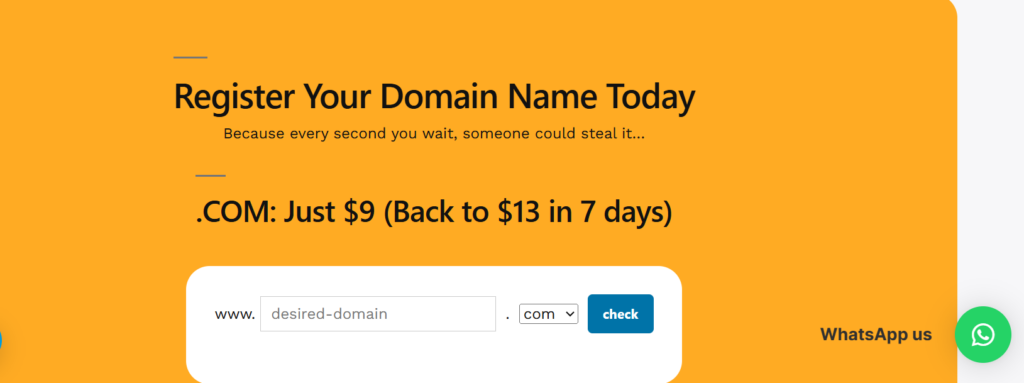
Your domain name is the foundation of your online presence. A .ss domain (South Sudan’s country code) tells both Google and your customers that you’re local, reliable, and relevant.
- Why it matters:
- Customers instantly know you’re based in South Sudan.
- Google favors local domains in regional search results.
- It builds trust and professionalism compared to using a .com.
- Customers instantly know you’re based in South Sudan.
Example: Instead of myshop.com, use myshop.ss.
2) Create a Google Business Profile (GBP)
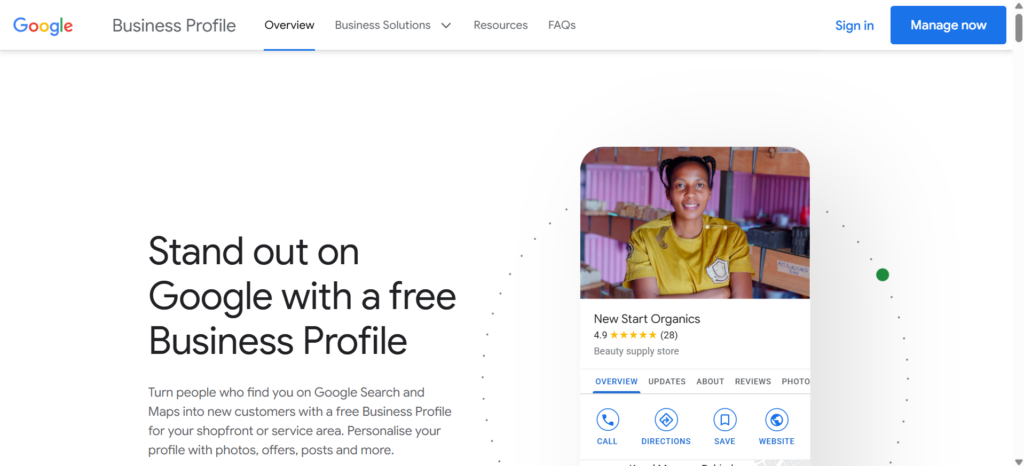
A Google Business Profile (formerly Google My Business) is one of the most powerful free tools for local SEO. It helps your business appear on Google Maps and “near me” searches.
Steps to set it up:
- Go to Google Business Profile.
- Add your business name, address, phone number, and website.
- Upload high-quality photos of your shop, products, or team.
- Add opening hours, services, and categories.
- Encourage happy customers to leave reviews.
3) Use Keywords That Locals Search For
Think about how people in South Sudan search online. They don’t just search for “restaurant.” They type “restaurant in Juba” or “pharmacy near Gumbo.”
How to use local keywords:
- Add them to your website titles, meta descriptions, and headers.
- Include them in blog posts (e.g., “Top 5 Tailors in Juba, South Sudan”).
- Add them to your Google Business Profile description.
Example: Instead of “Best Tailor,” use “Best Tailor in Juba, South Sudan.”
4) Optimize Your Website for Local SEO
Google and customers should be able to quickly see where you’re located and how to reach you.
Checklist:
- Add your business address and phone number to the footer of every page.
- Create a location-based About Us page (e.g., “Serving Juba since 2015”).
- If you operate in multiple cities, create individual service pages (e.g., “Plumbing in Juba” / “Plumbing in Malakal”).
- Ensure your site loads fast and is mobile-friendly (most people in South Sudan browse on mobile).
5) Get Listed in Local Directories
The more places your business appears online, the more trustworthy it looks to Google.
Where to list in South Sudan:
- African business directories (like Afrindex or Yellow Pages Africa).
- Social media platforms, especially Facebook and Instagram.
- Local online forums, church, or NGO community pages.
6) Collect Reviews and Testimonials
Reviews help you rank higher in local searches and build trust with potential customers.
- Ask happy clients to leave reviews on Google.
- Share customer testimonials on your website and Facebook page.
- Always reply to reviews, even negative ones. A polite, professional response shows credibility.
For example, if someone complains about slow service, reply with an apology and assurance that you’re working on improvements.
7) Use Social Media for Local Visibility
In South Sudan, Facebook and WhatsApp dominate online interactions. Use them to connect with your audience and drive traffic to your website.
Tips:
- Post about offers, events, and updates.
- Use local hashtags like #Juba, #SouthSudanBusiness, or #WauMarket.
- Run Facebook Ads targeting people in your city, affordable and effective.
- Always link your .ss website in your bio or posts.
Local SEO Tips & Strategies
Once you’ve covered the basic steps of Local SEO, the next move is to layer on advanced strategies that make your business stand out in competitive local markets.
These aren’t just about being found online; they’re about establishing authority, trust, and visibility in your community.
Two of the most powerful strategies to master are Local Content Marketing and Local Link Building.
1. Local Content Marketing Strategy
Local content marketing is more than just creating blog posts. It’s about crafting hyper-relevant, location-focused content that positions your business as both an expert in your field and a trusted member of the local community.
Done right, it attracts local traffic, builds loyalty, and improves rankings in local search.
How to Implement:
Step 1: Understand Your Local Audience
- Research local demographics using tools like Google Trends, Facebook Audience Insights, and surveys.
- Identify their pain points, seasonal needs, and search behaviors.
- Explore local questions on forums, neighborhood Facebook groups, or Quora to find real problems locals are trying to solve.
Step 2: Create Localized Content
- Write area-specific guides, e.g., “Best Parks for Families in Nairobi” or “Top Emergency Plumbers in Dallas.”
- Highlight local success stories, case studies, or customer spotlights that showcase your credibility in the area.
- Use Google Business Profile posts to announce offers, events, and community participation; these posts show directly in search results.
- Incorporate local keywords naturally into your titles, headings, and meta descriptions (e.g., “affordable car service in Mombasa”).
- Blend in storytelling and local references to build emotional resonance, e.g., “When the power outage hit our town last winter, here’s how we helped customers…”
3: Promote Content Locally
- Share content on local Facebook groups, WhatsApp communities, and neighborhood apps (like Nextdoor).
- Collaborate with nearby businesses to cross-promote, for example, a gym and a healthy meal-prep service could co-publish blog posts.
- Sponsor local sports events, charity runs, or community programs, and use the exposure to distribute content.
- Repurpose content into short-form videos, reels, or infographics for higher engagement across platforms.
Step 4: Engage With Your Audience
- Respond to comments, reviews, and social mentions quickly, showing that your business is approachable and trustworthy.
- Launch community-driven campaigns, like contests (“Share your favorite local coffee spot and win a gift card”).
- Encourage participation in the Google Local Guides program; these individuals often leave reviews, photos, and feedback that can boost your visibility.
- Adapt your future content from direct audience input, proving that your business listens to the community.
Step 5: Track and Measure Results
- Use Google Analytics to track how much of your traffic comes from local search queries.
- Monitor keyword rankings with tools like BrightLocal, Moz Local, or Ahrefs.
- Track engagement metrics: shares, comments, time on page, and conversions from local visitors.
- Adjust strategy based on performance: double down on content formats or topics that locals respond to most.
2. Local Link Building Strategy
Link building in Local SEO is about earning trust from your community online, not just boosting rankings.
Backlinks from respected local websites and organizations tell Google: “This business is credible, important, and relevant in this location.”
Strong local links can mean the difference between showing up in the local map pack or being buried under competitors.
How to Implement:
Step 1: Identify Local Link Opportunities
- Research local directories and chamber of commerce websites that list businesses in your area.
- Partner with schools, universities, or charities by sponsoring scholarships, events, or activities, which often come with a backlink.
- Offer your expertise for local press or media interviews (e.g., “local restaurant owner shares food trends for 2025”).
- Check your competitors’ backlinks using SEO tools to discover where they are getting local mentions.
Step 2: Create Link-Worthy Assets
- Build local resource pages (e.g., “Complete Guide to Family-Friendly Restaurants in [City]”).
- Publish research reports or case studies about your industry in the local area (e.g., “Survey: 70% of Nairobi homeowners prefer solar water heaters”).
- Design infographics or maps (like “Bike-Friendly Routes in Dallas”) that locals will share and link to.
- Provide how-to guides or DIY tips related to your field that have a local application.
3: Outreach to Local Websites
- Write personalized outreach emails, explaining why your content or resource would benefit their audience.
- Target community blogs, local journalists, and event organizers who might reference your expertise.
- Always give more value than you ask: offer guest posts, collaborations, or interviews instead of only requesting links.
Step 4: Build Relationships With Local Influencers
- Connect with local bloggers, YouTubers, Instagram influencers, and LinkedIn voices who focus on your city or niche.
- Interact with them genuinely: comment, share, and add to discussions before pitching collaborations.
- Co-create content: for example, a fashion boutique could collaborate with a local influencer to create a “Top 5 Summer Outfits in [City]” guide.
Step 5: Monitor and Maintain Backlinks
- Use tools like Ahrefs or SEMrush to track your backlink profile regularly.
- Disavow or request removal of spammy or irrelevant backlinks that could harm your SEO.
- Keep relationships alive by thanking local partners and continuing collaborations.
- Aim for consistent backlink growth rather than quick bursts, as this looks more natural to search engines.
Tools for Local SEO Success
Getting Local SEO right doesn’t have to be complicated. The key is to use the right tools, ones that save time, simplify tasks, and point you in the right direction without overwhelming you.
Here are some essential tools every local business can start with:
1. Google Keyword Planner
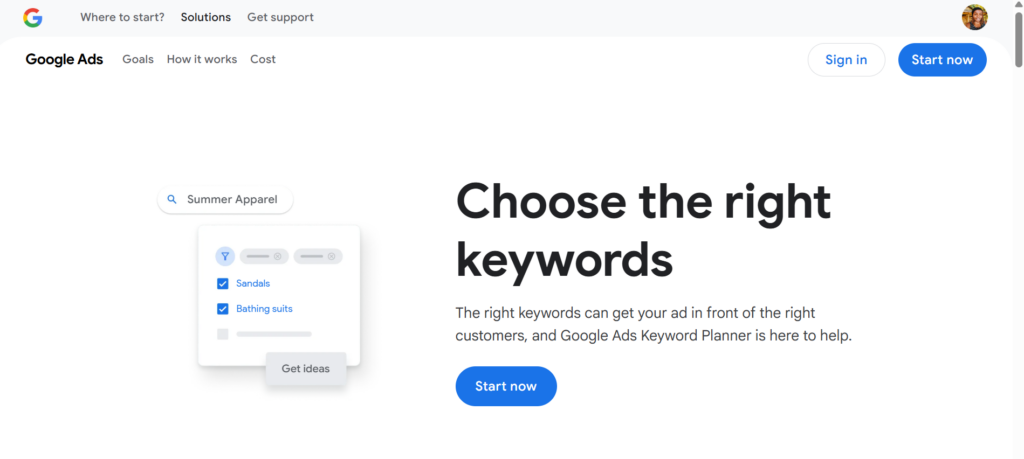
- What it does: Helps you discover the exact search terms people in your area are using.
- Why it matters: If people in Juba are searching “car repair near me,” but you only target “auto repair services,” you might miss valuable traffic.
- How to use it:
- Enter your service or product (e.g., plumber).
- Add your city or region to see local keyword variations.
- Use those keywords naturally in your website content, blogs, or Google Business Profile.
- Enter your service or product (e.g., plumber).
2. SEMrush
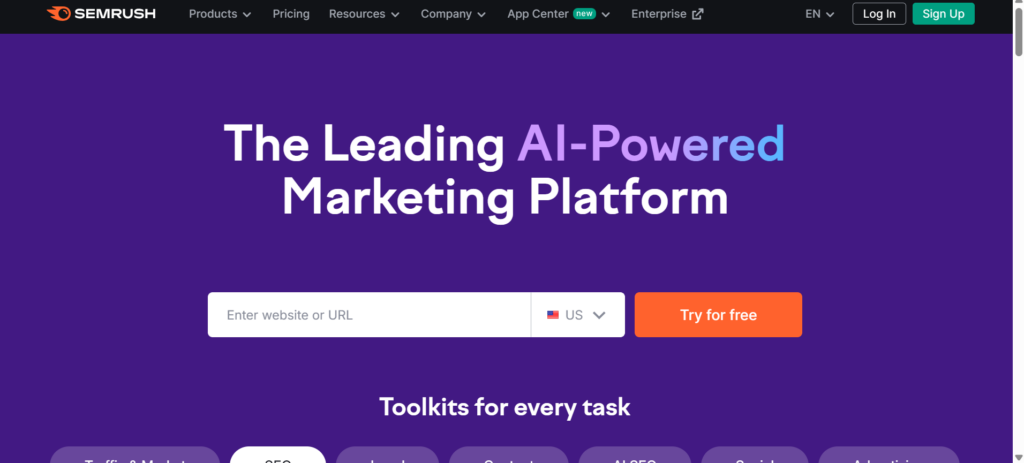
- What it does: Tracks your search rankings, monitors competitors, and shows where you can improve.
- Why it matters: Local SEO is competitive; your coffee shop isn’t the only one in town. SEMrush shows you how you compare and what keywords your competitors are ranking for.
- How to use it:
- Set up local tracking for your city.
- Check how your keywords are performing over time.
- Analyze competitor strategies to spot opportunities.
- Set up local tracking for your city.
3. Moz Local
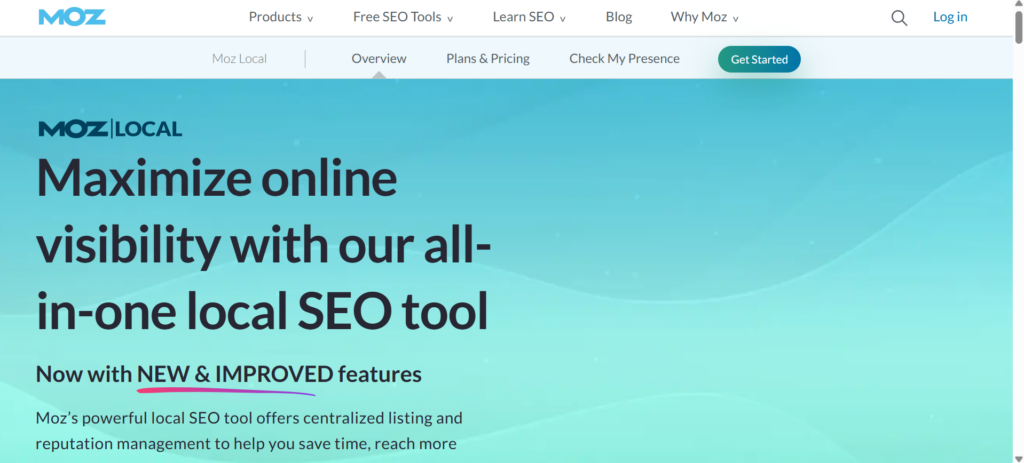
- What it does: Manages your local citations (your business name, address, and phone number across online directories).
- Why it matters: Inconsistent details (like using Road in one place and Rd. in another) can confuse search engines and lower your ranking. Moz Local keeps everything consistent and accurate.
- How to use it:
- Add your business details once.
- Moz distributes and updates them across major directories automatically.
- Monitor for errors or duplicates and fix them.
- Add your business details once.
4. AI-Powered Tools (for advanced needs)
- What they do: Suggest content ideas, write outlines, and even generate location-based SEO titles or blog drafts.
- Why they matter: Fresh, relevant content boosts Local SEO, but brainstorming topics can be hard. AI tools make it easier by showing trending questions, search queries, and content gaps.
- How to use them:
- Ask for blog ideas around your service + location (e.g., “best lunch spots in Juba”).
- Generate meta descriptions and headlines tailored for local searches.
- Use as inspiration, always add your personal touch.
- Ask for blog ideas around your service + location (e.g., “best lunch spots in Juba”).
What is the Difference Between SEO and Local SEO?
At first glance, SEO and Local SEO might seem like the same thing because both are about improving visibility in search results.
However, the difference lies in their scope, target audience, and business objectives.
Think of it this way:
- SEO is like opening your doors to the entire world, anyone, anywhere, who is searching for what you offer.
- Local SEO is like putting up a signboard in your neighborhood, inviting nearby customers to walk through your doors.
Here’s a detailed breakdown:
SEO (Search Engine Optimization)
SEO refers to strategies used to improve a website’s visibility in search engines (like Google, Bing, or Yahoo) on a national or global level. It focuses on reaching a wide audience, regardless of their physical location.
Key Characteristics of SEO:
- Geographic Reach: Global or national, not tied to a specific location.
- Search Intent: Targets people searching for general topics, products, or services without adding “near me” or a city name.
- Example: “best project management software” or “tips for weight loss.”
- Example: “best project management software” or “tips for weight loss.”
- Ranking Factors: Content quality, keyword optimization, backlinks, technical SEO, website speed, and mobile-friendliness.
- Primary Goal: Build brand authority and online visibility to attract large volumes of organic traffic.
Best For:
- E-commerce stores that ship globally.
- SaaS (software as a service) companies.
- Blogs, publishers, and online media.
- Businesses without a physical storefront (digital-first brands).
Example of SEO in Action:
A company selling eco-friendly water bottles wants to reach buyers worldwide. By targeting keywords like “reusable stainless steel water bottles”, optimizing its website content, and building backlinks, it can appear on Google when anyone, whether in the U.S., South Sudan, or Europe, searches for the product.
Local SEO
Local SEO focuses on improving a business’s visibility in location-based searches. The goal is to connect with people who are physically near your business and actively searching for the products or services you provide.
Key Characteristics of Local SEO:
- Geographic Reach: Limited to a specific area (city, neighborhood, or region).
- Search Intent: Targets people searching with a local intent (they want solutions nearby).
- Example: “best coffee shop in Juba” or “clinic near me.”
- Example: “best coffee shop in Juba” or “clinic near me.”
- Ranking Factors: Google Business Profile optimization, reviews, local backlinks, citations (directories), and location-specific keywords.
- Primary Goal: Increase foot traffic and attract local customers.
Best For:
- Restaurants, hotels, and cafés.
- Clinics, hospitals, or dental practices.
- Local service providers (plumbers, electricians, salons).
- Shops, schools, gyms, and physical offices.
Example of Local SEO in Action:
A restaurant in Juba wants to attract diners nearby. When someone searches “restaurants near me” or “best place to eat in Juba”, the restaurant can appear in the Google Map Pack (the top results that show business names, ratings, and directions).
Conclusion
Doing local SEO in South Sudan is not complicated. It’s about showing up where your customers are searching and proving that you’re a trusted local business.
Start with your .ss domain, set up your Google Business Profile, and keep your online details consistent. Step by step, you’ll see more clicks, more calls, and more walk-ins.
Ready to claim your spot online? Register your .ss domain now with Truehost US and start your journey today.